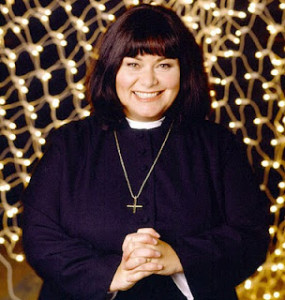 Growing feminism and sensitivity to women’s issues: Feminism has become a significant issue within the religious world.This concern has been expressed in a wide variety of different forms. Theologically, it has challenged understandings of God, human persons and the world of nature that some argue were implicitly rooted in male perspectives. Politically, it has striven to increase the level and scope of Woman’s leadership. Here the issue of woman’s ordination to ministerial roles has been a major focus. Socially, it has disputed traditional understandings of the role of the women in the family and community, as well as exerting pressure for just economies treatment.
Growing feminism and sensitivity to women’s issues: Feminism has become a significant issue within the religious world.This concern has been expressed in a wide variety of different forms. Theologically, it has challenged understandings of God, human persons and the world of nature that some argue were implicitly rooted in male perspectives. Politically, it has striven to increase the level and scope of Woman’s leadership. Here the issue of woman’s ordination to ministerial roles has been a major focus. Socially, it has disputed traditional understandings of the role of the women in the family and community, as well as exerting pressure for just economies treatment.
Theologically, a major issue has been that of inclusivity of language, especially language related to God. Exclusively patriarchal language is generally rejected and many feminists believe that it is appropriate to think of God as both male and female. In addition, many women have tried to articulate their newly felt solidarity in a particular form of liberation thought called feminist theology. This especially emphasises mutuality and equality for women as integral aspects of a vital religious vision.
 Spiritually, the new feminist emphasis places a premium on connection rather than dualism. Thus, distinctions between ordinary life and relation with God or between the public and private spheres of human existence are felt to be unhelpful. In relationships, this new understanding emphasises mutuality and non-competitiveness over dominant. An important element is the search for a spirituality that honours the body rather than subordinates it to the mind.
Spiritually, the new feminist emphasis places a premium on connection rather than dualism. Thus, distinctions between ordinary life and relation with God or between the public and private spheres of human existence are felt to be unhelpful. In relationships, this new understanding emphasises mutuality and non-competitiveness over dominant. An important element is the search for a spirituality that honours the body rather than subordinates it to the mind.
Within the political sphere, growing feminism frequently has entered on women’s roles within religious communities, especially with respect to leadership. Within Christianity and Judaism, this has focused especially on women’s ordination. Numerous Protestant denominations had, by the 1960s, formally ordained women to ministral roles. Within Anglicanism, the first regular ordinations of woman to the priesthood occurred in Hong Kong in 1971, with the Episcopal Church in the united States ordaining women in 1976 and the Church of England in 1992. Reformed Judaism first ordained women rabbis in 1972 and Conservative Judaism in 1985.
 Several major religious denominations, however, have resisted women’s ordination. The largest of these is the Roman Catholic Church, which has insisted in several statements from the 1980s on that the ordination of women to the priesthood is a theological impossibility. Similarly Eastern Orthodoxy has refused to ordain women, although at least two respected theologians have argued that there are no intrinsic reasons to prevent this. Thus, while growing feminism has found expression in increased leadership roles for women in many religious groups, the issue of women’s roles continues to be a topic of heated controversy.
Several major religious denominations, however, have resisted women’s ordination. The largest of these is the Roman Catholic Church, which has insisted in several statements from the 1980s on that the ordination of women to the priesthood is a theological impossibility. Similarly Eastern Orthodoxy has refused to ordain women, although at least two respected theologians have argued that there are no intrinsic reasons to prevent this. Thus, while growing feminism has found expression in increased leadership roles for women in many religious groups, the issue of women’s roles continues to be a topic of heated controversy.
Relation to the issue of women’s ordination is the broader question of the appropriate role of women in society. Here again, the place of a particular religious group on the liberal-conservative spectrum makes its influence felt. For conservative religious groups, the appropriate sphere of activity and influence for the women is the family. Those who support this position frequently argue that such a stance does not imply inferiority or inequality but rather appropriate recognition of natural differences that are all part of God’s plan. Liberal religious groups, on the other hand, support women’s aspirations to take on whatever roles they choose within the family as well as within the larger professional and public world. They argue that religious traditions offers guidelines rather than absolute regulations about gender roles, and that even these must be interpreted.
Feminism can be seen as part of the broadening impulse in religion, a desire to make religious belief and practice open to a wider array of people. Not surprisingly, among groups that advocate a more narrowly understanding of religion, there is little support for, and frequently significant opposition to , changes that bring women into the religious sphere in new ways. Indeed, in places like the United States, much of the disagreement between mainstream and fundamentalist religion has focused on the role of the women both within the religious group and the wider society.
Source: “Recent Trends in Religion” by: F. Michael Perko, SJ